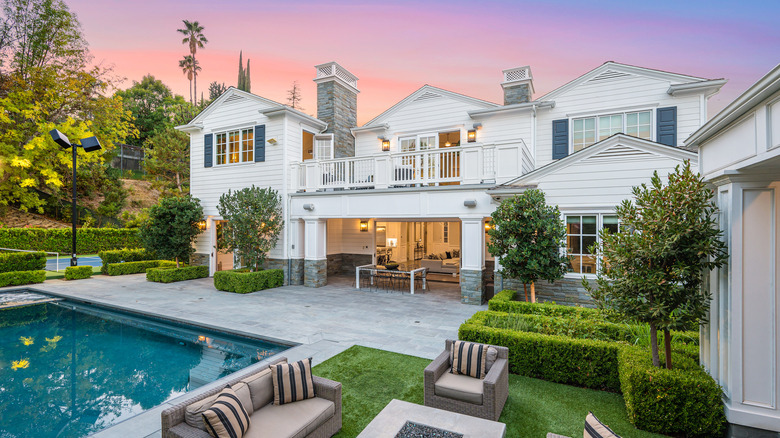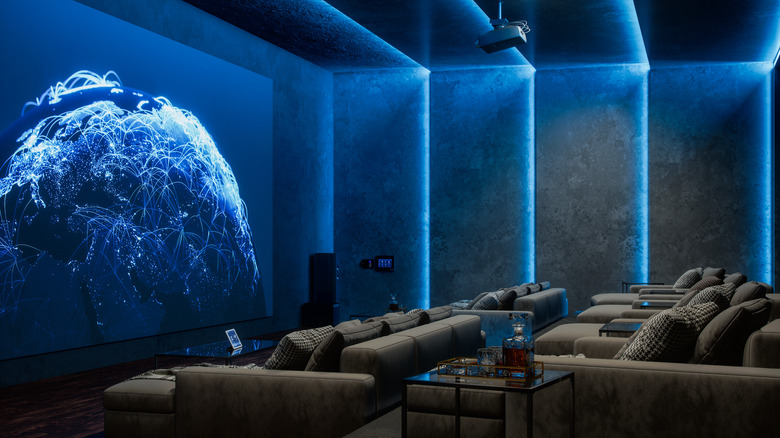What Are Iceberg Houses? Here's How Celebrities Are Jumping On The Trend
When it comes to the real estate trends of the rich and famous, a bigger price tag usually means a bigger and more opulent home. A recent global trend being adopted by the likes of Travis Kelce and others isn't making celebrity homes smaller, but it is changing the direction of the spread. These "iceberg houses" feature massive underground spaces that would put some of the most expensive mansions to shame. From subterranean swimming pools and wellness centers, to private theaters and full gyms, wealthy homeowners are expanding downwards in interesting ways. The renovations are largely invisible to the outside world but still very indulgent — and not at all cheap.
Travis Kelce remodeled the basement of his $6 million Kansas home and lowered it to build a man cave, complete with a golf simulator. Similarly, architects in London have drafted floorplans for "super basements" that hold car museums, climbing walls, and full-sized tennis courts. Soon, outsiders won't be able to tell if celebrities have humble homes, or if those modest structures are just the tips of very cool and extremely decked-out icebergs.
Why iceberg houses are trending
Instead of describing an iceberg house as having a "basement," realtors have used terms like "lower levels" and "McBasements," to sell these homes to a luxury clientele. According to architect Zoltan E. Pali, the iceberg houses trend began as a loophole for zoning laws and other regulations. It can also be traced back to the 2008 financial crash, which made land in cities like London significantly more expensive. These days, iceberg homeowners are trying to make the most of available space and preserve above-ground views, while also feeling more secure and holding on to a bit of privacy. It is counter to the old "if you've got it, flaunt it" mindset that has defined celebrity culture for decades, and it is catching on.
It's probably not a coincidence that the "quiet luxury" fashion and design trends (expensive clothing and decor that is outwardly plain and unassuming) have also seen a resurgence in the past couple years.
The downside (no pun intended) of iceberg houses
Before you start sketching those plans to expand your basement into a private theater or underground yoga studio, you should consider the cons. Neighbors and town council members alike have voiced concerns in places where this trend is growing because of the impact it may have on the surrounding areas. In 2021, a motion was presented to Toronto city council that called for a full study of how the construction associated with these builds could result in "soil permeability and erosion, mature tree injuries and removals, drainage and storm water management, and collapsing neighboring foundations." Back in the UK where the trend likely started, there have long been concerns about where the line should be drawn in terms of how many of these projects should be allowed when the long-term consequences are not yet known.
Regardless of what side of the debate you are on, we can all agree that the best home renovations are the ones that make the most out of existing spaces. Transforming a dead space in your home is cheaper, more creative, and probably won't draw the ire of your neighbors or local government officials.

